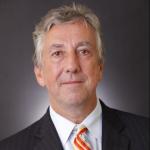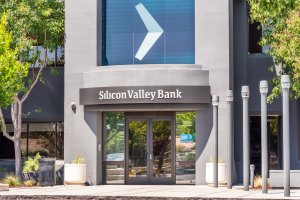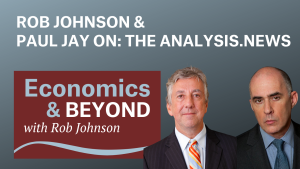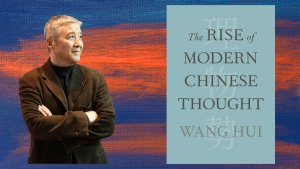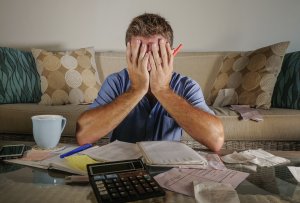These are questions that society is grappling with in the face of the economics profession’s failure to confront the global impact of exploding inequality within and between countries.
Limitations of the Dismal Science
Economists are very good at studying mechanisms for efficiently allocating things. But they are less effective at addressing more fundamental questions related to these things’ social value. Indeed, economists typically leave values unexamined in their mathematical formulas. Social utility is simply not explored.
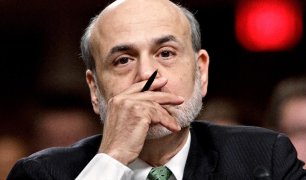 But what happens when economists’ implicit value assumptions break down?
But what happens when economists’ implicit value assumptions break down?
Take, for example, the so-called “Easterlin paradox,” which teaches that when a person’s income rises beyond what’s necessary to meet their basic needs it does not increase their happiness. This doesn’t match the standard capitalist economic assumption that rising personal wealth leads to increased individual fulfillment. Yet it’s been proven time and again. And economics ignores this. Our textbook models remain unchanged.
A Larger Problem
On a broader level, this helps explain why orthodox economics has clung to the illusion that economic growth inexorably leads to progress, even in advanced industrial countries where plenty of wealth already exists. This belief has led to a profound moral judgment: that those who lose in the march toward economic progress do not matter when compared to what will be achieved by greater growth. It’s all part of a trade off between economic equality and economic growth. Economists assume that more economic equality comes at the price of reduced economic growth, yet Nobel laureate Joseph Stiglitz picked apart this presumption in his recent book The Price of Inequality.
We can see the explicit costs of these economists’ implicit value judgments all around us. Economic growth at any cost has come at the expense of environmental degradation and accelerated destructive climate change. And in the American Midwest, the march of progress ravaged the backbone of the American economy, as once-prosperous industrial towns became ghost towns, including the areas of Detroit where I grew up.
Still, many economists believe that their models are objective and “value free.” What’s more, they are convinced that economic discipline must function with the disinterestedness of a physical science.
Where Economics Falls Short
So even in the wake of the 2008 crisis, many economists haven’t engaged in a needed reevaluation of economic values. What is a meaningful life? What do we aspire to? What, in the end, should those who influence the technocratic mechanisms of the economy be trying to create? Does the financial system serve society or mainly prey upon it to extract wealth?
Economics has proven itself devoid of answers to these profoundly important questions. Instead, economists aspire to lucrative speaking engagements and proving themselves capable in the technical mastery of elegant models that are devoid of connection to the needs of humanity beyond the unending accumulation of money.
The problem is that economists are unable to imagine alternative economic goals that would benefit society because they lack the imaginative tools for engaging in the discussion of morals and values. In economics, tractability of modeling technique predominates over deep social reflection. So a new type of inquiry and exploration is needed to determine what economics should aim for beyond trying to create ever more sophisticated models for economic growth.
Toward a New Set of Answers
It is in this light that the Institute for New Economic Thinking (INET) recently engaged with Union Theological Seminary in New York City with the goal of creating a new conversation to delve into the human issues we must explore to have a truly meaningful economics. We begin with a conversation between economics and theology. Together, we’ve created a public forum where leading economists and theologians can discuss money and markets and how to get economics back to serving society — not the other way around.
In a time of economic despair we cannot afford to place a premium on elegant mathematical models. It is more important to touch people’s hearts and give them the hope and resolve that brings them to a place of action. Those who understand the power of faith and hope and love as a way to persevere can make a big contribution to this conversation. And in our opening conversation at Union we saw this in action, with discussions ranging from GDP and inequality to the Bible, Gandhian tactics, the power of faith, and the importance of theology’s deeper moral insights.
It is just this kind of integration of humanity with economic insight that society needs to help us emerge from the ashes of economic crisis. This unusual combination of economic expertise with the examination of deeper values can help us create a better world, a world where economics does not ignore the suffering of everyday people.
It is only through the deeper insights of religion and the humanities that economics can get back to providing useful roadmaps for society. Economists can diagnose the current situation and even prescribe policy remedies that alleviate tragic situations. But by incorporating the deeper ethical, moral, and human insights of theology, economics can create a new way of seeing our circumstances that catalyzes positive and necessary change in our world.
That’s the power of a morally centered economics.
